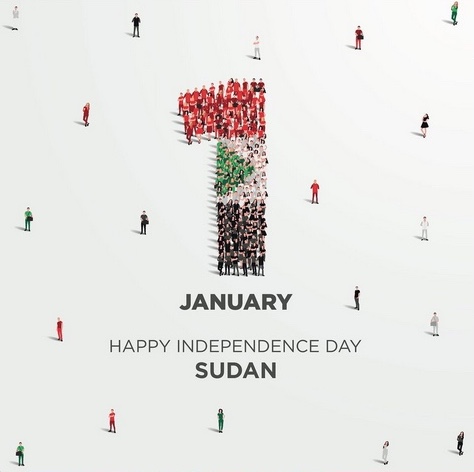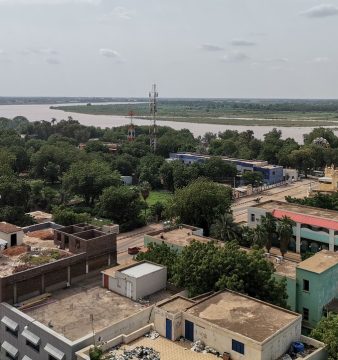Is Sudan’s Independence Day Really on 1 January?
As the world celebrates the arrival of the New Year on New Year’s Day on 1 January, Sudan and the Sudanese people, are celebrating two occasions. They are welcoming more than just the New Year; they are also celebrating Sudan’s Independence Day.
However, many ask if the 1st of January is the true date of Sudan’s Independence Day? Well, it depends on how you look at it. The Sudanese parliament, unilaterally and unanimously, declared Sudan’s independence on 19 December 1955. It was not until 1 January 1956 that the British and Egyptian governments recognised the independence of Sudan. As a result, 1 January 1956 became the official recognised date for Sudan’s Independence Day.
A little bit of a history lesson
The colonisation of Sudan began in 1820 when Egypt, under Muhammad Ali Pasha, invaded and took control of the region. Sudan became part of the Egyptian Empire, and the Egyptians exploited its resources. In 1881, the Mahdist Revolution, led by religious and political leader Muhammad Ahmad, better known as Al Mahdi as he claimed he was, successfully ousted Egyptian and British forces, establishing a short-lived Mahdist state. However, in 1898, British and Egyptian forces defeated the Mahdists and reasserted control, establishing a joint British-Egyptian condominium that lasted until Sudan’s independence in 1956.
Sudan gained independence in 1956, but the colonial legacy left deep ethnic, regional and religious divisions that would lead to decades of internal conflict. The British had favoured certain regions over others, creating division between the north and the south. These tensions culminated in the First and Second Sudanese Civil Wars and eventually the secession of South Sudan in 2011. For many, the colonial period and the divide-and-rule policy created lasting challenges for Sudan, making it difficult for the country to achieve political stability and unity after independence.
For more information, see BBC’s Sudan country profile.
Sudan today
War broke out in Sudan on 15 April 2023 between the Sudanese Armed Forces (SAF) and the paramilitary Rapid Support Forces (RSF), which according to the UN, is the ‘worst humanitarian nightmares in recent history‘, killing tens of thousands of people, with estimates ranging from 20,000 to 150,000 killed, and 11 million people displaced. The ongoing war has resulted in world’s largest displacement crisis.
See Sudan 2024: The Year in Review
Side note, why is the 1st of January the birthday for many Sudanese people?
The 1st of January is not just the birthday of many Sudanese people. It is common with many other nationalities such as South Sudanese, Vietnamese, Somalis, Afghans and Pakistanis. Statistically about 1/365 of the world population are likely to have 1 January as their birthday. This is due to many factors. Many birth dates were not recorded during earlier years and others were not recorded due to years of unrest and institutional upheaval. When people applied for their passports, identification cards, visas or refugee status, thousands chose the first of the year — or, in some cases, it was chosen for them.
Side note, Sudan’s celebrate two new years!
The world celebrates the New Year on 1 January every year. However, that is based on the Georgian calendar. There are around 40 calendars that are still in use today, but the main calendars used around the world are the Gregorian, Jewish, Islamic, Hindu, Chinese, Julian, and Persian calendars – each with their own respective New Year. For Muslims, and Sudan is a predominately Muslim country, the Hijri or Islamic New Year 1447 will take place around 26 June 2025 (estimated), based on the Hijri or Islamic calendar, which is based on astronomical observation. It is currently 1446 – the year began on 7 July 2024.





